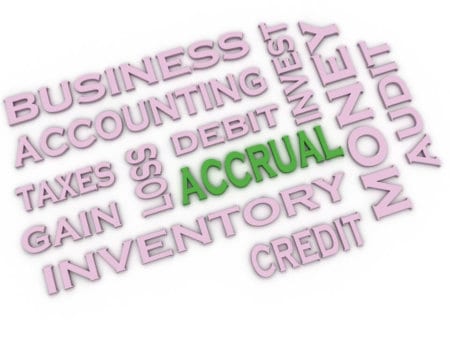Cash Based Vs. Accrual Based Accounting–Which is best for your business? That’s our question of the week. Cash-Based and Accrual-Based Accounting are the two major divisions of accounting methods. Businesses utilize one of these two types of accounting methods to record and report financial transactions.
Cash Based Vs. Accrual Based Accounting: The “You Asked for It” Blog

Many clients and especially new businesses have asked questions about the difference between these two accounting systems. So, we are glad to answer that question in this, Gavrilov & Co, “You Asked For it Blog.” By the way, we welcome you to a new feature of the Gavrilov & Co Blog, the “You Asked for It” blog. These blogs will focus on answering your burning questions about accounting and tax planning. We’ll focus on questions we hear every day. Thus we hope to demystify the art and science of accounting.
You’ll find this types of blogs once every 7 to 10 days, in addition to our regularly featured blogs. In our regular features we trace current trends in accounting news and financial planning information for medical professionals.
Cash and Accrual: Back to Basics
Put simply, the difference between Cash-based and Accrual-based accounting is largely a matter of timing. The difference has to do with when you record your income and expenses.
By the way, the method you choose can influence your profit and loss. Plus, the method will affect your income taxes. But let’s begin with the basic definitions.
Cash Based Accounting: Defined Because You Asked for It
There is no need for suspense here. Gavrilov & Co will tell you straight out, “Most businesses prefer to operate using the accrual method. But, some small businesses prefer the cash method for its simplicity.”
And, as the experts at Smartbooks say, “Choosing which method is right for your business depends on your business’s size, resources, and goals.
Defining, Designing and Refining: The Cash Based Accounting Method
Cash based accounting is the simpler of the two. Here is how it works:
- When money comes in, it’s added to the ledger.
- When it leaves, it’s subtracted.
- Notice this type of accounting “doesn’t rely on accounts receivable or accounts payable to keep track of money owed.”
Example Scenario from Your Company, “Widget World”
You built a set of Widgets for a customer, and sent them an invoice for 2,000.00.
- On the cash accounting method, you do not put that $2000.00 in your ledger until you deposit it in the bank, even if it takes your customer 30,60, or 90 days to pay you.
- Likewise if you buy a ton of Copper to make the widgets or trucks to deliver them, you do not record the expenses until the money leaves your account.
Thus it is no surprise that many small “mom and pop” businesses and individuals operate on a cash basis and prepare their income taxes using this very simple method. It is also no surprise that the cash-based accounting system does not create a very detailed picture of your business.
Is The Cash Based Accounting Right for You?
The experts at Zero give us some of the disadvantages of this simple system:
They point out that it is inaccurate. Why? Simply because “it could show you as profitable just because you haven’t paid your bills.”
It only gives you a day-to-day view of the profit. Making management decisions requires the big picture. For more information, Gavrilov & Co suggests you check out the Small Business Guide at Xero’s online resource.
How Does the Accrual Method of Accounting Work?

With the accrual method of accounting, your Widget World Company will account for its money when you earn it. With Accrual-based accounting, you record the revenue before any money changes hands. When you deliver the 2000.00 worth of Widgets, you put the 2000.00 in the book. In the same way, before money changes hands, you record expenses. You’re your view of your financial situation will include accounts payable and accounts receivable. This enriches your understanding of the financial shape of your company
Cash or Not: You Asked For It
Thus we close our first ever, “You Asked For It” style blog. Think about the accounting and tax matters you might ask the experts at Gavrilov & Co. Maybe you will see your questions answered here, “because you asked for it.”
By the way, is our “You Asked for It” motto for this type of blog familiar? Originally, it honors the name of a human interest show in 1950-1959. They too answered questions and expanded general knowledge for their audience—only we are specializing the questions to the accounting field.
And now you know more about cash-based and accrual-based accounting methods because “You asked for it.” Thank you for reading the Gavrilov & Co blog, and stay safe.

